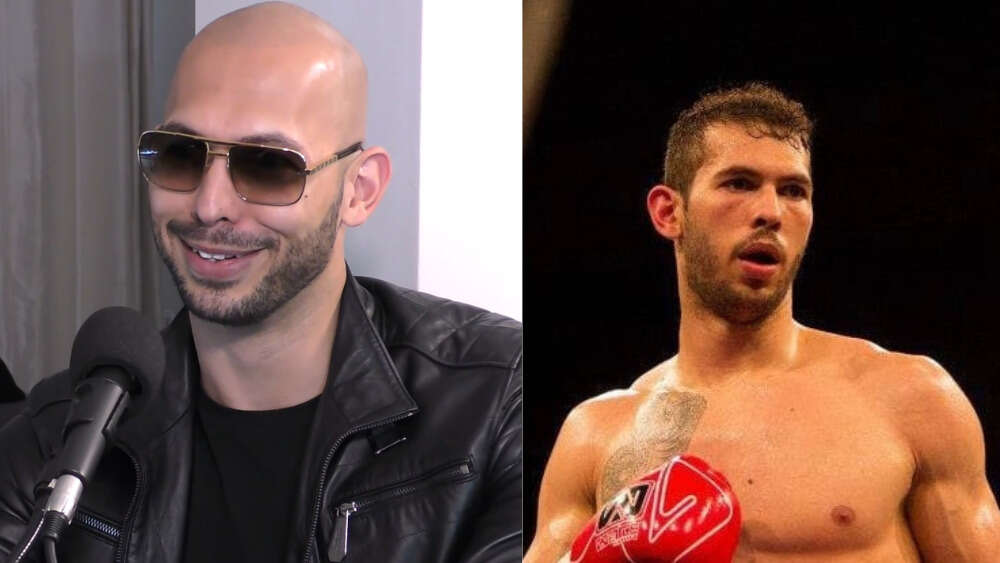Toxic 'Christian' influencer Andrew Tate banned, but is it too late?
What to discuss with young people
Former kickboxer, reality TV star and “orthodox Christian” Andrew Tate has now been banned from major social media platforms because of his extremely misogynist views. But is it too late to undo his “toxic” influence on boys and young men?
The 35-year-old British-American whose videos have gone viral on social media this year describes himself as “absolutely sexist” and “absolutely a misogynist”. Some of the opinions shared in his videos include that women are the property of men and female victims of sexual assault “bear some responsibility”. He has been accused of assaulting a woman and has described on video the violence he would commit against a woman if she accused him of cheating.
Unfortunately, Tate previously labelled himself as an Orthodox Christian, who reportedly donates $20,000 to the Romanian church every month. “The church in Romania is very powerful and I like having church friends, so I give them a lot of money,” said Tate on a YouTube video.
This is despite the fact that he goes on to say that Islam is the superior religion because Christians are “too tolerant”.
Australian teachers have linked a rise in sexual assaults against female students to the misogynistic behaviour espoused by Tate.
The risk of Tate indoctrinating young people into normalising violence and objectifying women has been expressed by domestic violence organisations, parents and teachers around the world, including here in Australia.
Australian teachers have linked a rise in sexual assaults against female students in several Melbourne private schools to the misogynistic behaviour espoused by Tate.
Tate’s impact on Australian school students has also been seen by advocacy group Collective Shout – which campaigns against the objectification of women and the sexualisation of girls.
As Collective Shout runs workshops for students across Australia, they are “seeing more girls speak out against the harmful messages espoused by Andrew Tate,” the group shares in a recent Facebook post.
“The girls are concerned about the negative influence this content is having on their male peers and younger boys,” the post continues, demonstrated by a video of 15-year-old student Fleur speaking about Tate’s influence at a recent workshop.
Tate first came into the public eye after being removed from Big Brother in 2016 when a video surfaced in which he allegedly attacked a woman, according to the BBC.
This year he sprang to prominence by giving followers incentives for sharing his content on social media. He created an online “academy” for fans, known as Hustler’s University, promising they could earn thousands of pounds in commissions by signing up new members and posting his videos.
As a result of this scheme, Tate’s videos went viral in just a few months. On Tik Tok, with its predominantly young audience, videos tagged with Tate’s name have been watched 12.7 billion times before his account was disabled. On Instagram, Tate had attracted 4.7 million followers before its parent company, Meta, took down his account, as well as banning him from Facebook.
YouTube has also banned channels associated with Tate, including the channel TateSpeech, which had over 744,000 subscribers. It’s notable that Tate was already permanently suspended from Twitter in 2017, after tweeting that rape victims bear some responsibility, according to NBC News.
The only major platform yet to suspend Tate is Amazon.com Inc’s video livestreaming site Twitch, where he has 50,000 followers.
“We need to talk to our young people about Tate’s harmful messages. If your kids aren’t watching Tate directly they have most likely heard of him.” – Collective Shout
However, according to Collective Shout, removing Tate from social media is only “one small step in the right direction and not an end-all solution.”
“We need to talk to our young people about Tate’s harmful messages. If your kids aren’t watching Tate directly they have most likely heard of him,” the organisation said on Facebook.
The post went on to give some questions by Collective Shout campaigner Renee Chopping that can “help start the conversation” with young people:
“What do you think about Tate’s videos and the influence he’s having on men and women?”
“Do you think Tate cares about the wellbeing of boys and men?”
“In what ways are these messages harmful to women and girls?”
“Tate talks a lot about being rich and ‘successful’ – often at the cost of others. What could an alternative view of success look like?”
“The goal here, Renee says, is to counter Tate’s messages with an alternative view of women, relationships, success and what it looks like to live a meaningful life,” Collective Shout adds.
Of course, when it comes to modelling what respectful relationships and a role model should look like – for both boys and girls, men and women – we need direct our young people no further than the Bible, to Jesus himself.
Email This Story
Why not send this to a friend?


